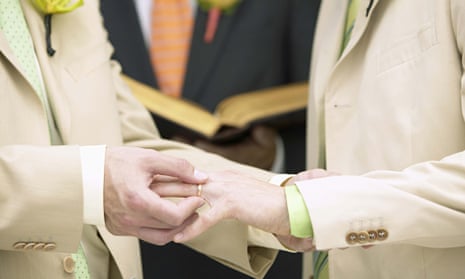When Enda Kenny, the taoiseach of Ireland, recently announced that 22 May would be his preferred day for a referendum on marriage equality, an already drawn out campaign finally had a date. In May, Ireland could become the first country in the world to pass marriage equality by a popular, national vote.
To get this far is nothing short of a phenomenal achievement. Homosexuality was only decriminalised in 1993; the Civil Partnership Act passed in 2010. The dedication of LGBT rights groups has changed hearts and minds. And now, Ireland is staging a referendum that enjoys support from all major political parties and the majority of the public, something unimaginable just a decade ago.
Referendums are strange beasts in Ireland. Opinion polls are notoriously unreliable. The first poll of 2015 showed 76% support for marriage equality. But there are cautionary tales. The 1995 referendum repealing Ireland’s constitutional prohibition of divorce was passed by just 9,114 votes, 0.56% of the ballots cast. However, 1995 is a foreign past. The last Magdalene laundry, where “fallen women” were incarcerated, only closed a year later. The terrible legacy of paedophilia and abuse perpetrated by Catholic priests was yet to be exposed.
The broad support for marriage equality has the no campaign on the back foot. It’s no surprise that the most vehement opposition comes from the Catholic church and small lobby groups acting as foot soldiers in what they perceive as a battle of ideologies, rather than the progression of civil rights.
Already, the no side has confused the debate by focussing on children, as opposed to consenting adults seeking the right to marry. Repetitive statements about “denying” children mothers and fathers are red herrings and at odds with Ireland’s social reality, where one-third of children are raised outside the traditional heterosexual, married family structure. Repetitive, too, is the small number of campaigners on the no side, while the yes side enjoys a more diverse range of advocates, from human rights groups to student leaders, unions to conservative politicians. The actor Colin Farrell has emerged as a passionate advocate. The problem for the church is its depleted moral authority. With support and facts in short supply, the no campaign is using another powerful referendum campaign weapon: fear.
The bishop of Elphin, Kevin Doran, said recently that gay people can get married, just to people of the opposite sex. “There is nothing wrong with being nice to them,” he said, “but that is not what the referendum is about.”
Adfam, the Alliance for the Defence of the Family and Marriage, distributed hysterical leaflets in Dublin recently, drawing international attention. “They [homosexuals] will still contract cancers earlier in life,” the leaflet read. A spokesman for the group defended the leaflet, saying voting for same-sex marriage “is like voting for Islamic State-style sharia law”. Such factual inaccuracies and stridency are off-putting, not to mention offensive, but within the Irish media, there is a sort of paranoia about “balance” and giving equal air time to both sides of the debate. This is, after all, a country where the national broadcaster, RTE, still broadcasts the Angelus twice a day.
For now, the campaign is tentatively taking shape and the yes side is acutely aware of complacency. The world will be watching Ireland in the lead-up to May’s referendum. If the Irish electorate seizes this opportunity, it won’t just be a local victory, it could be the watershed moment the global movement for marriage equality has been waiting for.
